Do You Need To Winterize Your Boat? — It Depends
Winterizing your boat prepares it for long-term storage during the winter months when you won't be using it. However, there are certain instances when you don't need to winterize your boat. In this article, we'll help you find out whether or not you are required to winterize your boat, depending on storage options and the climate in your area.
If you live in a climate where the temperature regularly drops below freezing, you need to winterize your boat. On the other hand, if you live in a warmer climate where the temperature doesn't drop below freezing, you may not need to winterize your boat at all.
Boats that are stored in a garage that is insulated and temperature-controlled need not be winterized. But those stored in a driveway definitely need to be winterized. Let's take a closer look at what other factors determine the need for boat winterization.
Summary
- Even if a boat is stored in a heated indoor facility or in a location with mild winter temperatures, it is still recommended to protect it by covering it with a tarp or storing it in a covered area.
- Even if a boat is stored in a temperature-controlled marina or dry rack, you still need to winterize it in case of power outages, mechanical failures, or extreme weather conditions.
- In warmer regions, such as Texas, Florida, and California, changing your boat's oil and filters, and thoroughly cleaning and drying your boat are recommended to prevent mold and mildew.
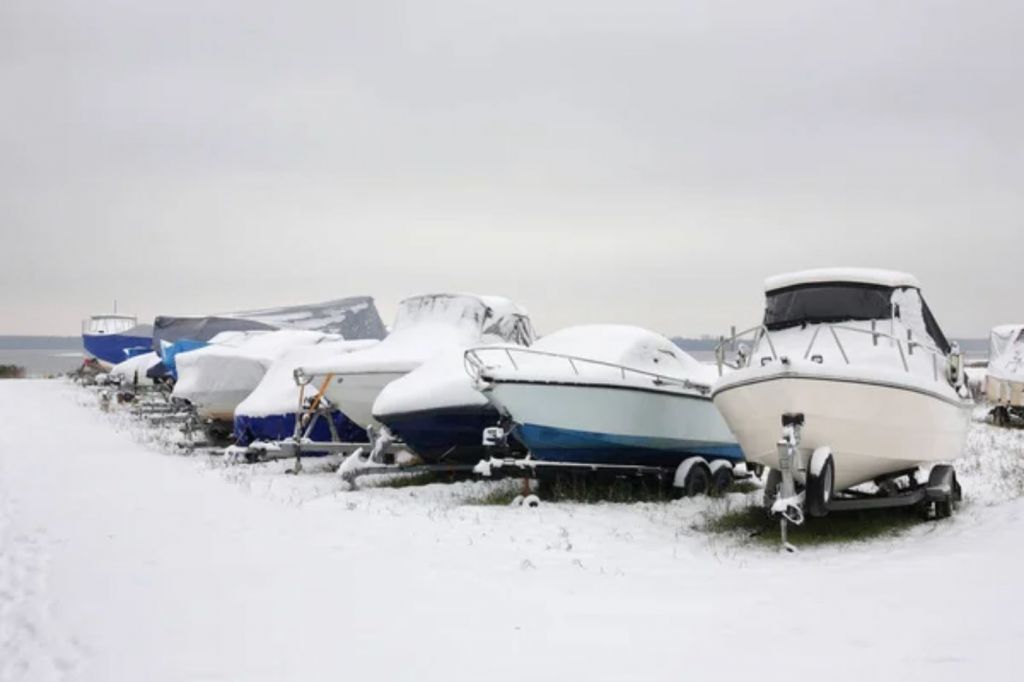
Winterizing a Boat Depending on Storage Options
If you're a boat owner, you may be wondering if you need to winterize your boat. The answer to this question is not straightforward, as it depends on a few factors. Let's find out each of these factors below:
| Storage Location | Winterization Required? |
|---|---|
| Garage | No need, if the garage is insulated and temperature-controlled |
| Driveway | Winterization recommended |
| Marina | May not need winterization if climate-controlled, but recommended if stored outdoors |
| Dry rack | May not need winterization if climate-controlled, but recommended if not temperature-controlled |
| Boat storage facility | Winterization recommended |
Keeping a boat in a garage
If you have a garage, you might be tempted to store your boat there during the winter months. While a garage can provide some protection from the elements, it might not be enough to prevent damage to your boat.
One of the biggest concerns with garage storage is humidity. If your garage is not properly ventilated, moisture can build up, leading to mold and mildew growth. Additionally, if your boat is not properly covered, dust and debris can accumulate, which can lead to scratches and other damage.
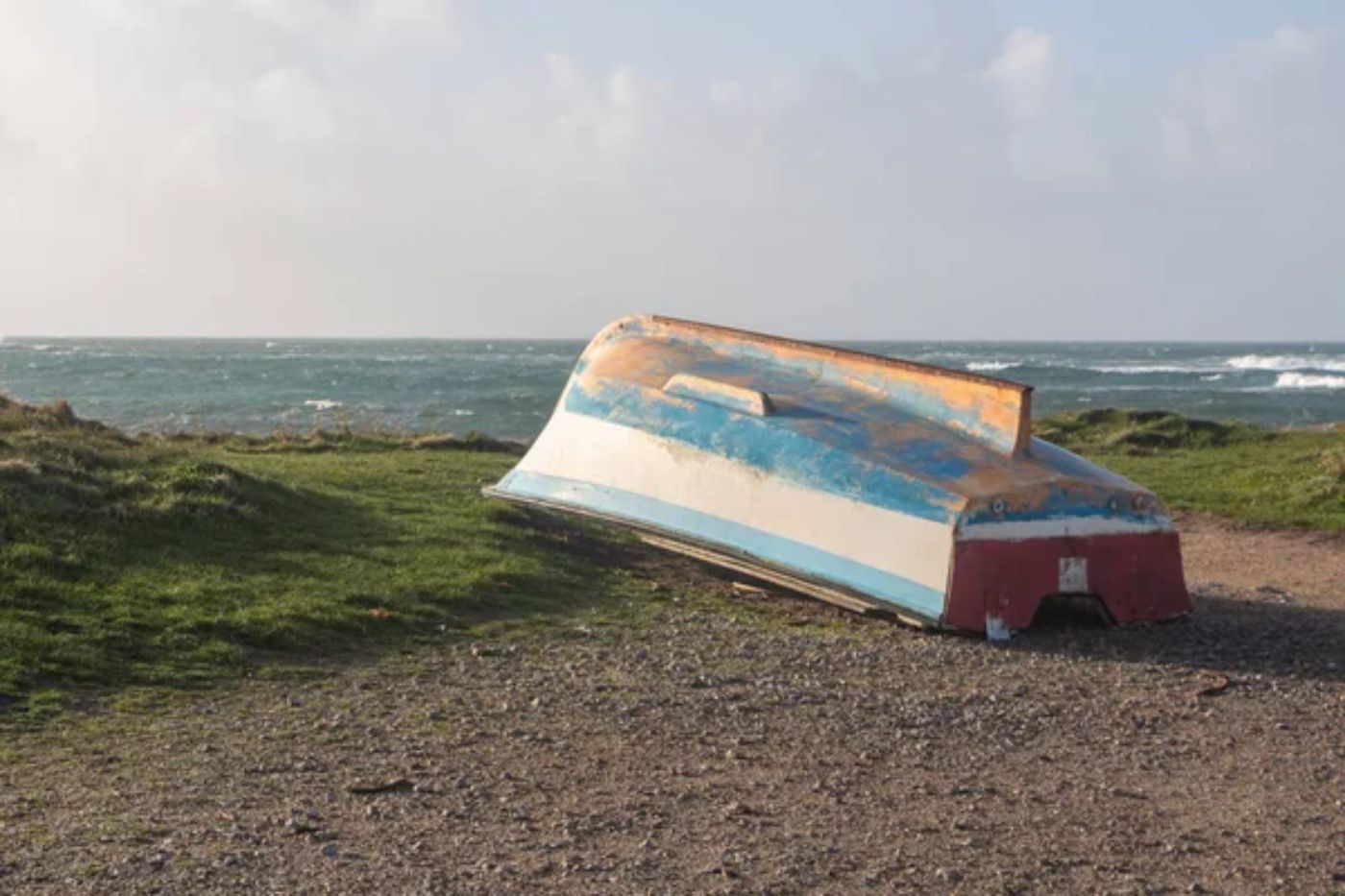
If you store your boat in a heated garage that doesn't drop below freezing, you may not need to winterize it. However, if the temperature drops below 32°F (0°C), you will need to winterize your engine.

Do I Need to Winterize an Indoor Stored Boat?
Nevertheless, it's still recommended to take precautions such as draining the engine and fuel tanks and adding antifreeze to the water systems to prevent any potential damage.
Keeping a boat in the driveway or in a boat storage facility
You will still need to winterize a boat even if it is stored in a driveway or a boat storage facility because the boat's engine and other systems can still be affected by cold weather and freezing temperatures. When water freezes, it expands, and this can cause damage to the boat's engine, plumbing, and other systems.
There may be some exceptions to the need for winterizing a boat, such as if the boat is stored in a heated indoor facility or in a location with mild winter temperatures.
-
If a boat is stored in a heated indoor facility or in a location with mild winter temperatures, the need for winterizing may not be as critical as it would be in colder climates. In a heated indoor facility, the boat's engine and other systems are less likely to be affected by freezing temperatures, and therefore may not require the same level of winterization as boats stored outdoors.
-
In locations with mild winter temperatures, the boat may not need to be winterized as extensively as it would in colder climates.
However, it is still recommended to protect the boat from the elements, by covering it with a tarp or storing it in a covered area. Additionally, you will need to check the boat's systems periodically throughout the winter to ensure they are functioning properly.
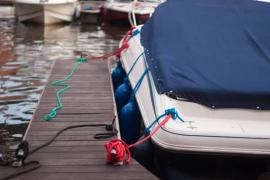
How to Cover Your Boat for Winter: 7 Hacks to Not Mess Up
Keeping a boat in a marina or in a dry rack
If you keep your boat in a marina, you may not need to winterize it if the marina provides climate-controlled storage. However, if your boat is stored outdoors, it's recommended to winterize it to prevent any potential damage.
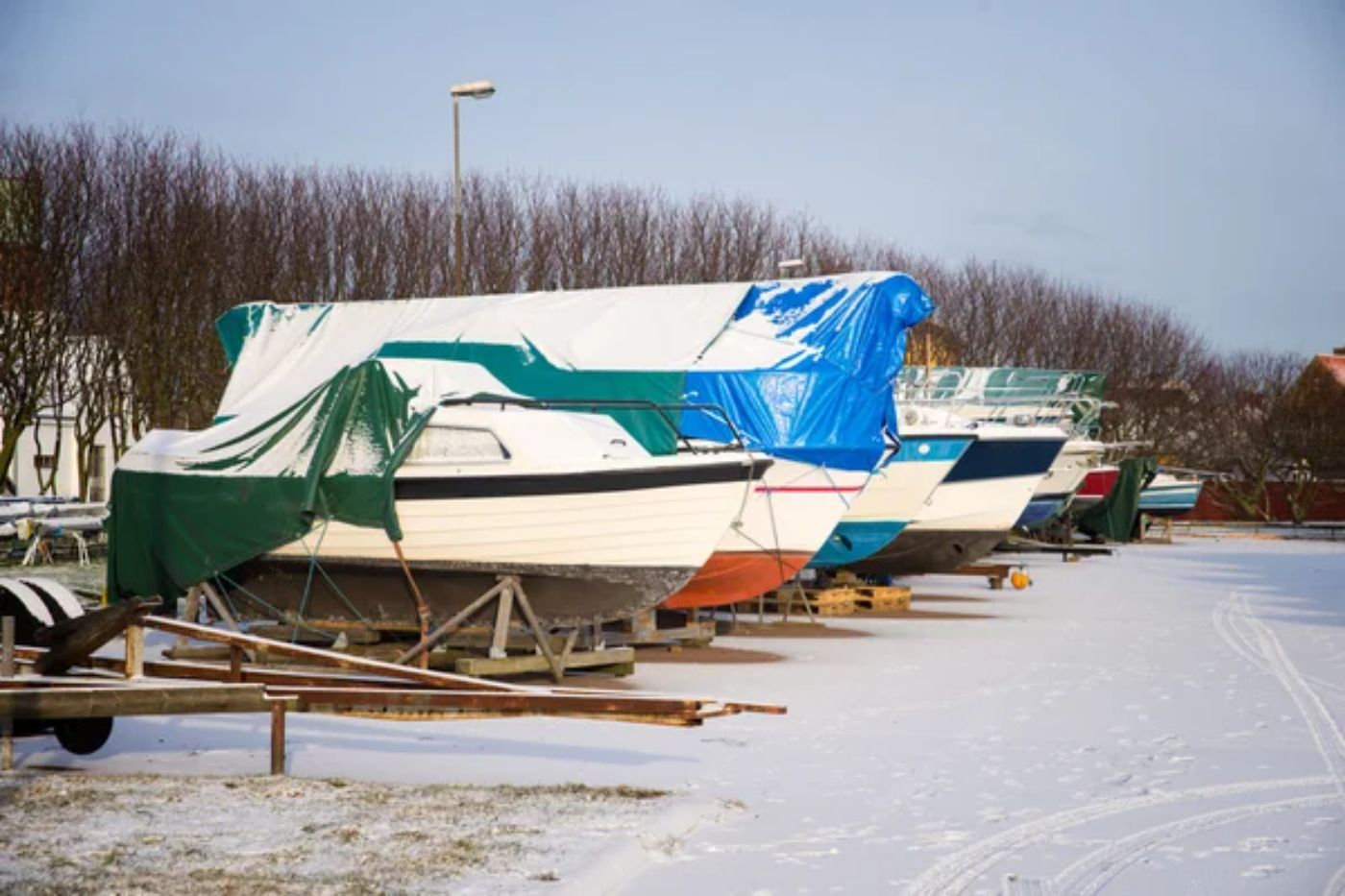
Now, if you keep your boat in a dry rack, you may not need to winterize it as well, as long as the storage facility is climate-controlled. However, if the facility is not temperature-controlled, it's recommended to winterize your boat to protect it from the cold weather.
There may be exceptions where it may be necessary to winterize a boat even if it is stored in a temperature-controlled marina or dry rack depending on the specific circumstances:
-
Power outages: If the marina experiences a power outage during the winter months, the temperature control systems may not function properly, causing the boat to be exposed to freezing temperatures.
-
Mechanical failures: If the temperature control systems in the marina or dry rack fail due to a mechanical issue, the boat may be exposed to freezing temperatures.
-
Extreme weather conditions: In the event of a severe winter storm or other extreme weather conditions, the marina or dry rack may not be able to maintain a stable temperature, which could put the boat at risk of damage.
-
Improper storage: If the boat is not stored properly within the temperature-controlled marina or dry rack, it may be exposed to freezing temperatures or other risks that could cause damage.
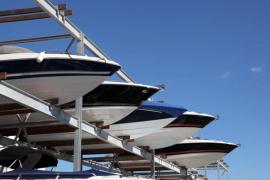
How & Where to Store Your Boat in Winter (5 Places)
Winterizing Your Boat Differs Depending on Climate
The table below shows how the climate in different states determines the need to winterize a boat:
| State | Climate | Winterization Recommended? |
|---|---|---|
| Texas | Mild to cool winters | Optional, but recommended for extended storage |
| Florida | Mild to warm winters | Optional, but recommended for extended storage |
| California | Mild to cool winters | Optional, but recommended for extended storage |
| South Carolina | Mild to cool winters | Recommended for extended storage |
While it's true that boats in warmer regions may not be at as much risk for damage from freezing temperatures, there are still important steps you should take to protect your boat during the off-season.
Even in warmer regions, it's a good idea to change your boat's oil and filters before storing it for the winter. You should also make sure to thoroughly clean and dry your boat to prevent mold and mildew from forming.
Meanwhile, if you live in a region with cold winters and freezing temperatures, there's no doubt you need to winterize your boat. Failing to properly winterize your boat can result in serious damage, including cracked engine blocks and frozen water systems.
To protect your boat in freezing temperatures, you'll need to take a number of steps, including draining all water from the engine and water systems, adding antifreeze to the engine and water systems, and protecting your boat's exterior with a cover or shrink wrap.
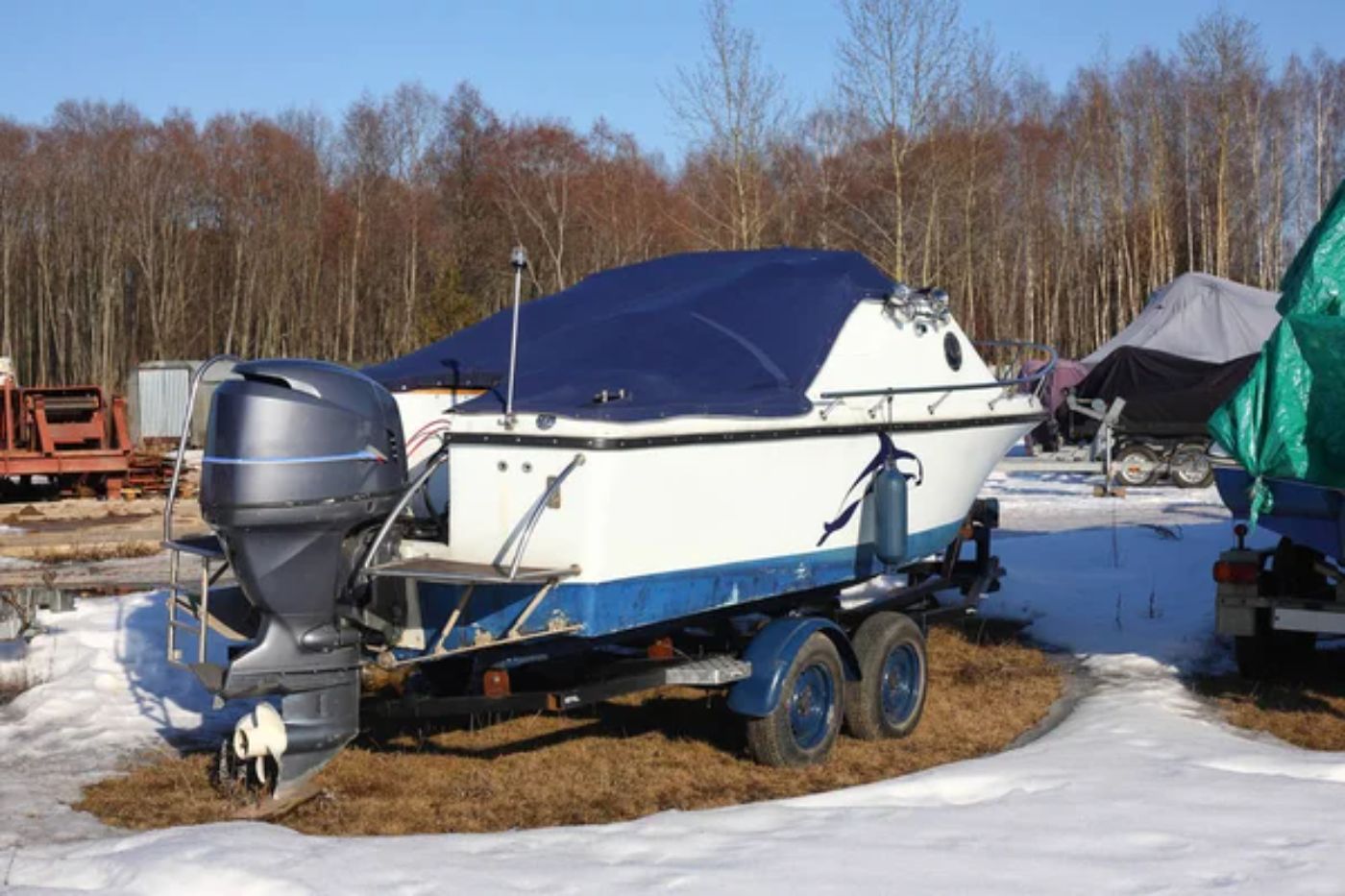
In addition to these steps, it's also a good idea to have your boat professionally winterized if you live in a region with particularly harsh winters. While it may cost more upfront, professional winterization can help ensure that your boat is properly protected and ready to go when spring rolls around.
If you want to know when to start winterizing your boat depending on climate cues, here's an article you might find helpful.
Winterizing in Texas
If you live in Texas, you may not need to winterize your boat at all. Texas is one of the few states where winterizing isn't always necessary due to the mild winters. However, it's still a good idea to take precautions and protect your boat during the colder months.
It is recommended that boat owners in Texas should still take some basic steps to protect their boats during the winter months. This includes draining the water from the engine and all water systems, adding a fuel stabilizer to the gas tank, and storing the boat in a dry and covered location.
You may also want to check the boat's battery and make sure it's fully charged before storing it for the winter. While Texas may have mild winters, it's still possible for temperatures to drop below freezing and taking these precautions can help prevent damage to your boat.
Winterizing in Florida
Florida is another state where winterizing your boat may not be necessary. If you live in southern Florida, you may not need to winterize at all.
Florida's mild climate means that winterizing your boat may not be necessary in many parts of the state. However, if you live in the northern parts of Florida, where temperatures can drop below freezing, you may need to take precautions to protect your boat during the colder months.
One of the most important steps you can take is to properly drain all water from your boat's systems, including the engine block, cooling system, and freshwater system. Any water left in these systems can freeze and cause damage to your boat.
You should also consider adding antifreeze to your boat's systems to further protect against freezing. Always use the correct type of antifreeze for your boat's specific systems, and follow the manufacturer's instructions carefully.
Winterizing in California
California is a large state with varying climates, so whether or not you need to winterize your boat will depend on where you live.
In California, the need for winterizing will depend on the climate in your specific region. If you live in southern California, where temperatures generally do not drop below freezing, you may not need to winterize your boat.
However, if you live in northern California, where temperatures can get colder, it is recommended that you winterize your boat to protect it from potential damage.
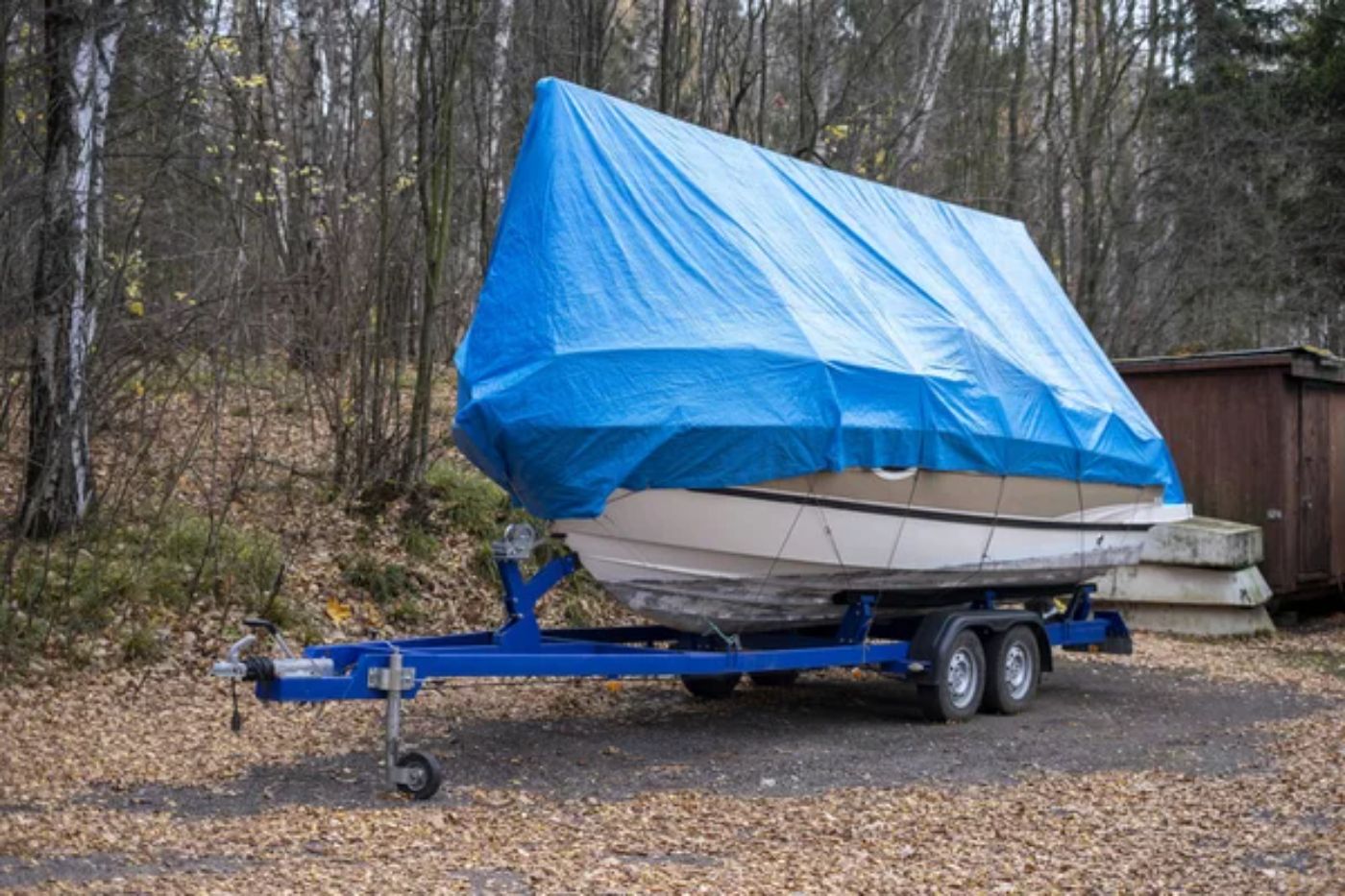
Winterizing in South Carolina
South Carolina is another state where winterizing your boat is recommended. South Carolina has a mild winter climate, but it can still get cold enough to cause damage to boats that are not properly winterized.
Freezing temperatures can cause water in the boat's plumbing systems to expand and crack pipes and fittings, which can lead to costly repairs.
To winterize your boat in South Carolina, you should start by draining all the freshwater from the plumbing systems, including the water heater, shower, and sinks. You should also add antifreeze to the plumbing systems to prevent any remaining water from freezing.
If you have a sailboat, here's a step-by-step guide on how to winterize it.
Remove water from all other systems, such as the bilge pump and live well, and remove drain plugs from the engine block, exhaust manifolds, and other areas where water can accumulate.
Finally, you should cover your boat or place it in winter storage to protect it from the elements. If you choose to cover your boat, make sure the cover is secure and will not blow off in high winds. If you opt for winter storage, make sure the facility is secure and provides adequate protection from the elements.
Did you find the answer to your specific question?
👍 0 👎 0




Leave a comment